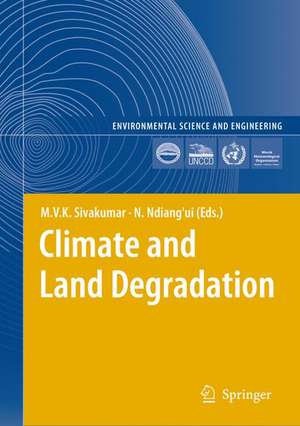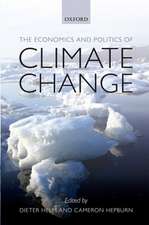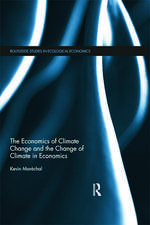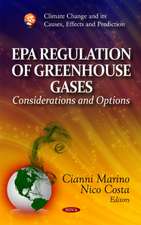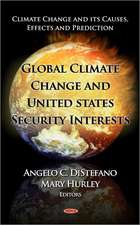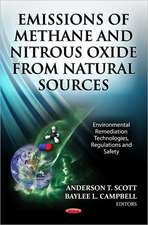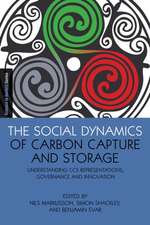Climate and Land Degradation: Environmental Science and Engineering
Editat de Mannava VK Sivakumar, Ndegwa Ndiang'uien Limba Engleză Hardback – 28 aug 2007
| Toate formatele și edițiile | Preț | Express |
|---|---|---|
| Paperback (1) | 1233.69 lei 6-8 săpt. | |
| Springer Berlin, Heidelberg – 13 noi 2010 | 1233.69 lei 6-8 săpt. | |
| Hardback (1) | 1276.59 lei 6-8 săpt. | |
| Springer Berlin, Heidelberg – 28 aug 2007 | 1276.59 lei 6-8 săpt. |
Din seria Environmental Science and Engineering
- 18%
 Preț: 1238.42 lei
Preț: 1238.42 lei - 18%
 Preț: 2166.68 lei
Preț: 2166.68 lei - 18%
 Preț: 1420.88 lei
Preț: 1420.88 lei - 18%
 Preț: 914.20 lei
Preț: 914.20 lei - 18%
 Preț: 1225.94 lei
Preț: 1225.94 lei - 18%
 Preț: 1118.13 lei
Preț: 1118.13 lei - 18%
 Preț: 1402.74 lei
Preț: 1402.74 lei - 18%
 Preț: 3419.93 lei
Preț: 3419.93 lei - 18%
 Preț: 1223.55 lei
Preț: 1223.55 lei - 18%
 Preț: 1008.91 lei
Preț: 1008.91 lei - 18%
 Preț: 1234.46 lei
Preț: 1234.46 lei - 18%
 Preț: 1409.82 lei
Preț: 1409.82 lei - 18%
 Preț: 736.64 lei
Preț: 736.64 lei - 18%
 Preț: 949.73 lei
Preț: 949.73 lei - 18%
 Preț: 1287.47 lei
Preț: 1287.47 lei - 18%
 Preț: 2116.64 lei
Preț: 2116.64 lei - 18%
 Preț: 1231.95 lei
Preț: 1231.95 lei - 15%
 Preț: 641.71 lei
Preț: 641.71 lei - 23%
 Preț: 1129.32 lei
Preț: 1129.32 lei - 18%
 Preț: 1237.93 lei
Preț: 1237.93 lei - 18%
 Preț: 956.18 lei
Preț: 956.18 lei - 24%
 Preț: 1057.94 lei
Preț: 1057.94 lei - 24%
 Preț: 1079.09 lei
Preț: 1079.09 lei - 18%
 Preț: 953.03 lei
Preț: 953.03 lei - 18%
 Preț: 1233.06 lei
Preț: 1233.06 lei - 15%
 Preț: 666.73 lei
Preț: 666.73 lei - 18%
 Preț: 1222.31 lei
Preț: 1222.31 lei - 18%
 Preț: 1242.35 lei
Preț: 1242.35 lei - 18%
 Preț: 1232.89 lei
Preț: 1232.89 lei - 18%
 Preț: 1823.56 lei
Preț: 1823.56 lei - 18%
 Preț: 1228.96 lei
Preț: 1228.96 lei - 18%
 Preț: 1221.69 lei
Preț: 1221.69 lei - 18%
 Preț: 945.79 lei
Preț: 945.79 lei - 18%
 Preț: 1008.28 lei
Preț: 1008.28 lei - 24%
 Preț: 795.50 lei
Preț: 795.50 lei - 18%
 Preț: 1246.47 lei
Preț: 1246.47 lei - 18%
 Preț: 1239.85 lei
Preț: 1239.85 lei - 18%
 Preț: 957.62 lei
Preț: 957.62 lei - 18%
 Preț: 1244.89 lei
Preț: 1244.89 lei - 15%
 Preț: 640.55 lei
Preț: 640.55 lei - 18%
 Preț: 950.33 lei
Preț: 950.33 lei - 18%
 Preț: 1824.01 lei
Preț: 1824.01 lei - 15%
 Preț: 639.59 lei
Preț: 639.59 lei - 18%
 Preț: 947.50 lei
Preț: 947.50 lei - 18%
 Preț: 951.29 lei
Preț: 951.29 lei - 18%
 Preț: 1229.73 lei
Preț: 1229.73 lei
Preț: 1276.59 lei
Preț vechi: 1556.81 lei
-18% Nou
Puncte Express: 1915
Preț estimativ în valută:
244.30€ • 265.28$ • 205.22£
244.30€ • 265.28$ • 205.22£
Carte tipărită la comandă
Livrare economică 22 aprilie-06 mai
Preluare comenzi: 021 569.72.76
Specificații
ISBN-13: 9783540724377
ISBN-10: 3540724370
Pagini: 652
Ilustrații: XXVI, 623 p.
Dimensiuni: 155 x 235 x 40 mm
Greutate: 2.14 kg
Ediția:2007
Editura: Springer Berlin, Heidelberg
Colecția Springer
Seriile Environmental Science and Engineering, Environmental Science
Locul publicării:Berlin, Heidelberg, Germany
ISBN-10: 3540724370
Pagini: 652
Ilustrații: XXVI, 623 p.
Dimensiuni: 155 x 235 x 40 mm
Greutate: 2.14 kg
Ediția:2007
Editura: Springer Berlin, Heidelberg
Colecția Springer
Seriile Environmental Science and Engineering, Environmental Science
Locul publicării:Berlin, Heidelberg, Germany
Public țintă
ResearchCuprins
The Assessment of Global Trends in Land Degradation.- Status and Trends in Land Degradation in Africa.- Status and Trends in Land Degradation in Asia.- Trends in Land Degradation in Latin America and the Caribbean, the Role of Climate Change.- Trends in Land Degradation in Europe.- Climate and Land Degradation — an Overview.- Climate, Extreme Events and Land Degradation.- Effects of Some Meteorological Parameters on Land Degradation in Tanzania.- Rainfall and Land Degradation.- Frequency of Wet and Dry Spells in Tanzania.- Climate Variability, Climate Change and Land Degradation.- Fire Weather and Land Degradation.- Importance of Drought Information in Monitoring and Assessing Land Degradation.- The Role of Land Degradation in the Agriculture and Environment Nexus.- Using Weather and Climate Information for Landslide Prevention and Mitigation.- Drought Hazard and Land Management in the Drylands of Southern Africa.- Climate Monitoring in the Southern Africa Development Community.- Carbon Sequestration and Land Degradation.- Sustainable Land Management Through Soil Organic Carbon Management and Sequestration — The GEFSOC Modelling System.- Seasonal Variation of Carbon Dioxide, Rainfall, NDVI and it’s Association to Land Degradation in Tanzania.- Land Degradation Control in Northern Africa.- Challenges and Trade-Offs in Environmental and Financial Approaches of the Afforestation of Degraded Lands.- The EU-Funded Medcoastland Thematic Network and its Findings in Combating Land Degradation in the Mediterranean Region.- Managing Land Use, Protecting Land and Mitigating Land Degradation: Tanzania Case Study.- Implementation of Initiatives for Addressing Climate Change and Land Degradation: A Look at the Philippine Context.- Successful Grassland Regeneration in a SeverelyDegraded Catchment: a Whole of Government Approach in North West Australia.- Land Degradation Management in Southern Africa.- Successful Experiences of Sustainable Land Use in Hyperarid, Arid and Semiarid Zones from Peru.- Role of Organic Agriculture in Preventing and Reversing Land Degradation.- Using Better Climate Prediction in the Implementation of National Action Programmes — (Eastern) Europe.- Improving NAP Implementation through Effective Use of Early Warning: Experiences in the IGAD Sub-Region.- Role of Drought Monitoring and Management in NAP Implementation.- Climate and National Action Programs in Latin America.- Conclusions and Recommendations.- Workshop Statement.
Caracteristici
Presents the state-of-the-art papers, real world applications and innovative techniques for combating land degradation Offers recommendations for effectively using weather and climate information for sustainable land management practices
